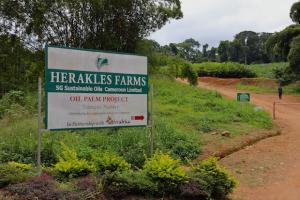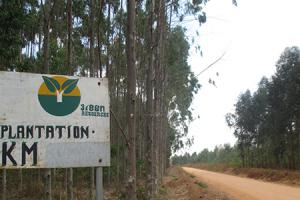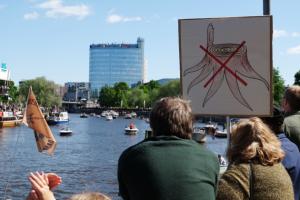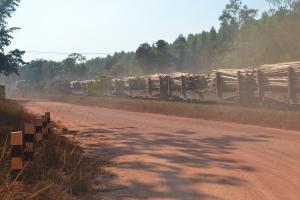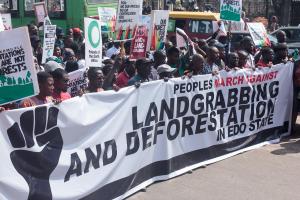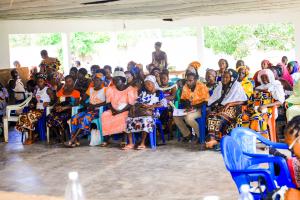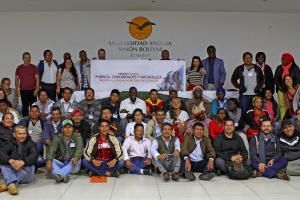The declaration is open for sign-on in solidarity until 31 January 2019.
Large-Scale Tree Plantations
Industrial tree plantations are large-scale, intensively managed, even-aged monocultures, involving vast areas of fertile land under the control of plantation companies. Management of plantations involves the use of huge amounts of water as well as agrochemicals—which harm humans, and plants and animals in the plantations and surrounding areas.
Other information
22 December 2018
Bulletin articles
22 December 2018
Villagers in Sierra Leone Ponder their Future after Winning their Lands Back from a Palm Oil Company
After a decade of struggling against a company that grabbed their lands and erected oil palm plantations, a court has ruled that the lands must be given back to the communities. Now they are trying to figure out what they should do with the large areas of lands that have been occupied by oil palms. (Available in Swahili).
Bulletin articles
22 December 2018
An interview with the activist Nasako Besingi. He organized communities in their protests against US agribusiness Herakles Farm’s palm oil plantations. Due to this engagement, he has been the victim of Herakles Farm and government physical attacks, intimidation and criminalization. (Available in Swahili).
Bulletin articles
22 December 2018
At first glance, the Nzivi village is a village as many others in the area. But a big difference is that it does not allow investors for large-scale activities, such as monoculture tree plantations. Green Resources is the main private plantation company active in Tanzania. (Available in Swahili).
Other information
22 December 2018
In May 2017, the Estonian government launched a procedure for a national designated spatial plan to determine the most suitable location for a planned 1 billion euros pulp mill in Viljandi and Tartu Counties, as well as a strategic environmental impact assessment procedure.
20 December 2018
The declaration is open for sign-on in solidarity until 31 January 2019.
Publications
27 November 2018
Only available in French.
Bulletin articles
15 November 2018
Certification schemes for tree plantations initially generated many expectations, promising a true transformation. Yet after all these years, we can definitely conclude that what the RSPO and FSC also have in common is that they will not meet those expectations.
Bulletin articles
15 November 2018
For years, WRM has been warning many certified monoculture plantations in Brazil have been established on land for which titles were obtained fraudulently. This article discusses the case of two companies that operate in the Brazilian Amazon: Agropalma and Jari Florestal.
Bulletin articles
15 November 2018
Interview with Hajaratu Abdullahi from Community Forest Watch in Nigeria who talks about the hardship and misery that the palm oil company Okomu Oil, subsidiary of global palm oil company SocFin, is bringing to communities like hers in Nigeria's Edo state
Bulletin articles
15 November 2018
Dekel Oil’s false promises lure villagers into dangerous oil palm growing contracts in Cote d’Ivoire
Land owners in Cote d'Ivoire are trapped in contracts with Dekel Oil, a company that made false promises arguing villagers would become rich by signing contracts to let oil palm monocultures on their land.
Bulletin articles
15 November 2018
In Ecuador, the expansion of industrial oil palm plantations is the main cause of deforestation. A meeting to exchange knowledge, the first of its kind in Ecuador, brought together leaders from oil palm-affected provinces from the three regions of the country.


